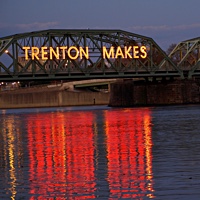Home » Jazz Articles » Live Review » Lewis Nash and Steve Wilson at JazzNights
Lewis Nash and Steve Wilson at JazzNights
Hockaday/Jones Barn
JazzNights
Hopewell, NJ
April 9, 2017
Two tacit, entwined propositions animated a performance by Lewis Nash and Steve Wilson at JazzNights, a long running concert series in the Princeton, NJ area curated by Mary Wisnovsky and Maitland Jones. The first is that it's possible for the compositions of Duke Ellington, Fats Waller, Dizzy Gillespie, Thelonious Monk, Horace Silver, Billy Strayhorn, and Denzil Best to coexist in a cohesive, artistically satisfying fashion. (Wilson's and Nash's superb 2014 recording, Duologue on MCG Jazz, extended their interpretative reach to include music by Ornette Coleman, Eddie Harris, as well as three of Wilson's compositions.) Throughout a ninety minute set in the comfortable confines of the Hockaday/Jones Barn, Nash and Wilson proved that the juxtaposition of material consigned to different eras of jazz history, oftentimes the province of ad hoc ensembles and academically tinged projects, can thrive as present-centered activity rather than primarily a celebration of the past.
The second, closely related proposition is that a drummer and a saxophonist are capable of illuminating all of this music without the help of additional instrumentation—something that Nash and Wilson have been doing since 2001—by playing in living, breathing ways that aren't dwarfed by the accomplishments of their iconic predecessors. In contrast to the abundance of saxophone and drum segments that are part of the contemporary performance landscape—sometimes all friction, heat, and intensity—Wilson and Nash weren't butting heads and charging down well-trodden pathways; rather, they made accessible, audience friendly music that often sounded like a witty conversation between two old friends.
"Wrong Is right," Thelonious Monk's oft quoted line regarding the limitations of hewing to conventional thought and practices, was a good thing to keep in mind during the course of Nash's and Wilson's performance. On the one hand, they were operating within the wide confines of the jazz mainstream; on the other, rules were routinely bent, playfully subverted or broken. With the exception of one solo performance apiece—Wilson's interpretation of Strayhorn's "Chelsea Bridge" and Nash's take on Best's "Move"—the music wasn't about them as individuals; rather, it emphasized their fearlessness and absolute trust in one another. An up-tempo version of Gillespie's "Woody 'N' You" was one of many examples of a near telepathic connection in which they completed each other's phrases. At the end of Wilson's improvised choruses during Ellington's and Tizol's "Caravan," he routinely left ample space for Nash's comments.
In managing the business of simultaneously accompanying and interacting with Wilson, Nash moved around bits of vocabulary in a matter of seconds. Though everything was executed on the fly, you could hear the results of a mind at work, as he briefly established a tangible thought or groove and then, without hesitation, moved on without any regard for propriety. Frequent changes in implements—sticks, brushes (including the handles), mallets, hands, and fingernails—weren't flashy or impatient; rather, they were but one aspect of his ongoing conversation with Wilson. During "Jitterbug Waltz," Nash imitated a portion of Waller's melody with brush handles on the cymbals, played straight time, and at one point answered Wilson with an efficient sweep of the brush across the drum head. He was also a master at shifting the feel of the music without disrupting the flow. For instance, during a portion of Ellington's "The Mooche," Nash's stomping swing beat underpinned Wilson's soprano sax. When he suddenly took the steady bass drum out of the mix for a time the music briefly took on another, slightly different character, before he put it back into place.
Wilson's vocabulary was every bit as impressive as Nash's; however, he frequently played in ways that disguised his proficiency in favor of maximizing his rapport with the drummer and constructing coherent improvisations that contained speech-like patterns. "The Mooche" was the first of several instances in which he forged a slippery kind of order out of a series of tart, clipped phrases. Initially leaving a lot of open space that was filled by Nash's brushes, a turn on "Jitterbug Waltz" gradually became more animated when Wilson threw down a number of blues drenched utterances. During a particularly heated portion of "Woody 'N' You," several jagged, intermittent blasts were eventually converted into precise, orderly phrases.
The significance of concert presentations such as Nash's and Wilson's is not to be overestimated. They earned a standing ovation by playing familiar material in ways that challenged and held the audience's attention, and by doing so reaffirmed jazz as an ever-evolving medium which encourages seekers of every stripe to step up make their own contributions.
< Previous
Going North
Comments
Tags
Lewis Nash
Live Reviews
David A. Orthmann
United States
New Jersey
Trenton
Steve Wilson
duke ellington
Fats Waller
Dizzy Gillespie
Thelonious Monk
Horace Silver
Billy Strayhorn
Ornette Coleman
Eddie Harris
For the Love of Jazz
 All About Jazz has been a pillar of jazz since 1995, championing it as an art form and, more importantly, supporting the musicians who create it. Our enduring commitment has made "AAJ" one of the most culturally important websites of its kind, read by hundreds of thousands of fans, musicians and industry figures every month.
All About Jazz has been a pillar of jazz since 1995, championing it as an art form and, more importantly, supporting the musicians who create it. Our enduring commitment has made "AAJ" one of the most culturally important websites of its kind, read by hundreds of thousands of fans, musicians and industry figures every month.























